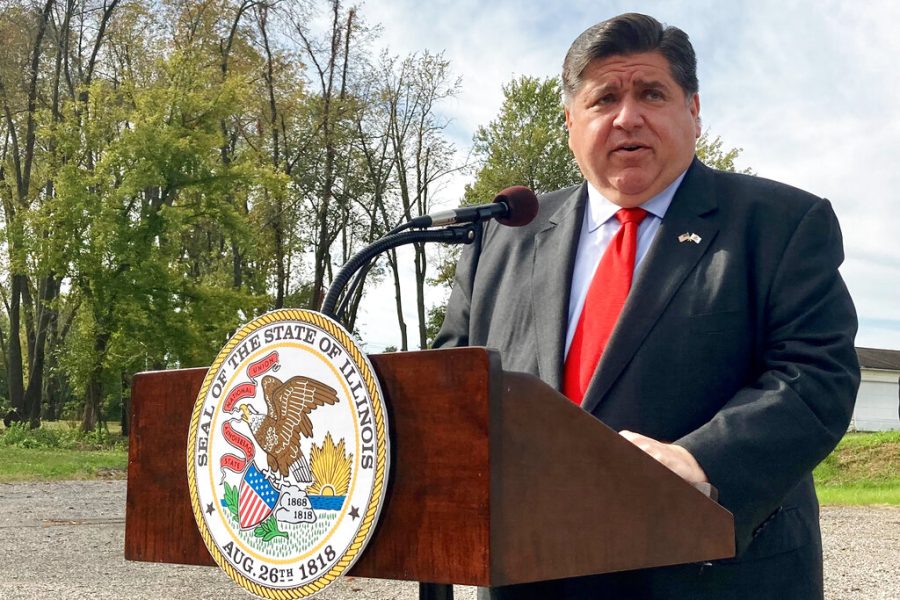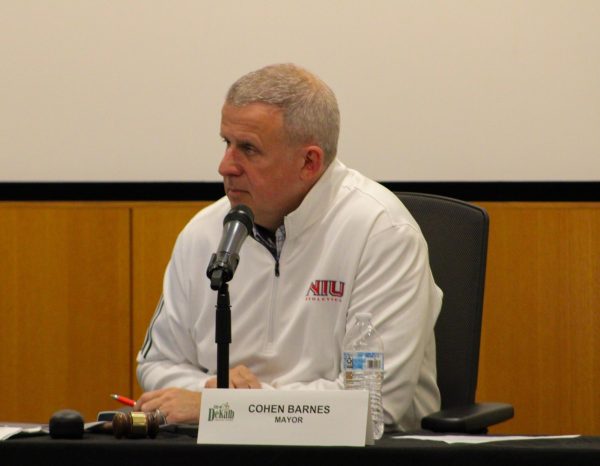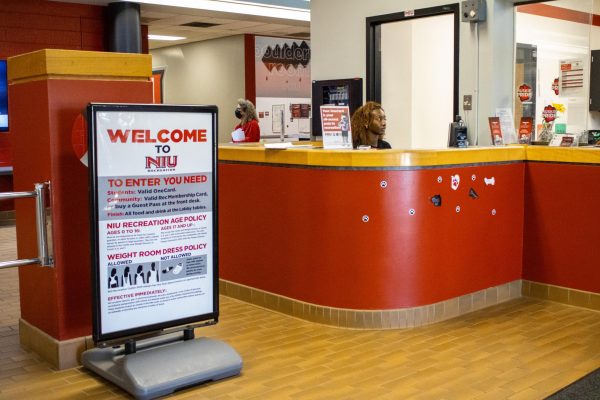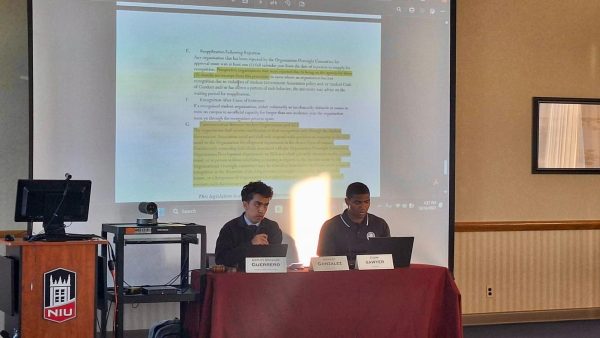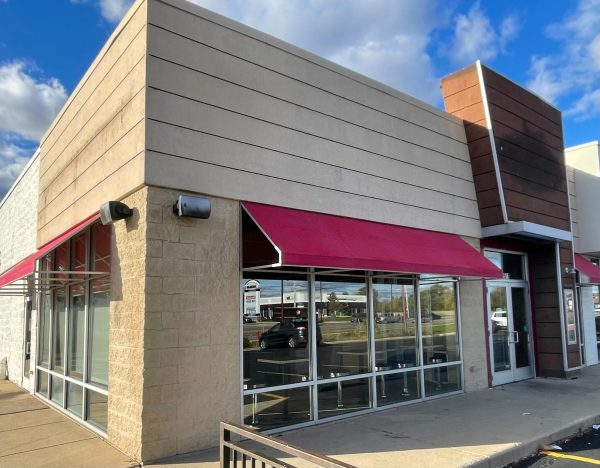Pritzker proposes freeze on grocery and gas tax in State of State Address
NIU slated to receive around $92 million in state funding for FY23
Associate Press
FILE – Illinois Gov. J.B. Pritzker speaks on Oct. 27, 2021, in Springfield, Ill. Pritzker laid out a freeze to the states gas and grocery taxes for FY23 in Wednesday State of the State Address in Springfield.(AP Photo/John O’Connor, File)
DeKALB— On a snow-covered Wednesdy, Gov. J.B. Pritzker gave his annual State of the State and budget address on the Old State Capitol stage in Springfield. The 57-year-old Democrat laid out his budget proposal for FY23 in front of healthcare workers and first responders after winter weather forced the legislature to cancel its three scheduled session days this week.
Pritzker has proposed a $45.4 billion general funds budget for the upcoming fiscal year. The proposed budget is a 3.4% reduction in comparison to the current year. As the governor ramps up for what is expected to be a contentious reelection cycle, Pritzker’s plan for the coming fiscal year includes temporary tax freezes and incentives as Illinois rebounds from the COVID-19 pandemic.
The big picture budget
The governor proposed a one-year freeze of the 39.2 cents per gallon motor fuel tax, lifting the 1% sales tax on groceries and a property tax rebate of up to $300 equal to the property tax credit available on income taxes.
Pritzker believes that this temporary freeze, specifically in relation to the gas tax, will not affect the state’s ability to continue funding already approved projects.
“The Illinois Department of Transportation has been efficiently completing projects on time and on budget, it has collected enough infrastructure dollars already to allow us to freeze the gas tax for a year without affecting any of our road projects,” Pritzker said. “It will bring immediate relief at the gas pump and still allow us to upgrade our infrastructure.”
While reducing taxes on Illinois residents, Rep. Jeff Keicher (R-Sycamore) feels the proposals only solve things temporarily.
“I would always tell you that less tax is better,” Keicher said. “The challenge is the grocery tax is minimal. The gas tax freeze is minimal and all of these are on-time situations.”
Keicher believes that these reliefs will end when the state’s on-time payments from the American Rescue Plan run out.
“These are one-time payments that are supporting our ability to do this,” Keicher said. “Our best, most prudent, course of action is to be diligent with making the hard decisions that were needed to be made last year and the year before, that the governor continues to kick the can on.”
Help toward higher education
On the higher education front, Pritzker proposed paying off the College Illinois program’s 30% deficit and broadening the uses of the MAP scholarships for training programs for critical industries such as healthcare.
“This small change will open more training and education opportunities for thousands of Illinoisans,” Pritzker said. “It will put people to work addressing the critical healthcare workforce shortage.”
In the 547-page budget proposal, NIU has been budgeted $92.2 million for the upcoming fiscal year, more than the $87.8 million appropriated for the current year, but less than the requested $98.63 million, according to a December Board of Trustees report.
An additional payment to the pension fund
During his address, the governor also discussed the state’s largest bill, the Illinois pension fund.
Pritzker said that the state has met its pension payment obligations every year that he’s been in office, but believes that Springfield should do more than just the minimum payment.
“I propose making not only our minimum pension payment this year but also an additional half a billion dollars,” Pritzker said.
Pritzker said that this would be the first time since 1994 that the state would reduce the pension debt by more than the minimum requirement. The additional payment is expected to save taxpayers $1.8 billion in interest over the coming years.
Keicher supports this payment decision if there are excess funds available to do so.
“We need to pay down our backlog of bills and our pension obligation is the largest that’s out there,” Keicher said. “I think excess revenues that couldn’t otherwise be returned to the taxpayer should go towards paying down our pension obligation.”
What’s next
Now that Gov. Pritzker has submitted his budget proposal to the legislature, both chambers of the General Assembly will now begin to dig into passing and amending the proposal.
The General Assembly is required by law to pass a budget by May 31 of each year, but the last official day of the legislative session is scheduled for April 8, so Keicher believes the final budget will be passed by the April 8 end of the session date.


